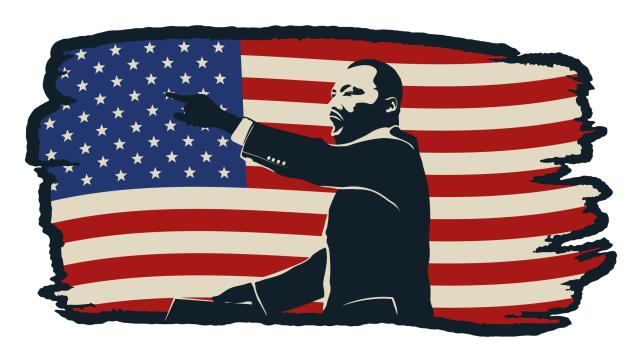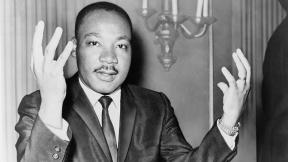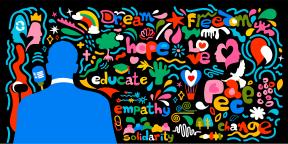
The service component of the MLK Jr. Day federal holiday is often overlooked. For far too many Americans, it is simply a day off work or out of school. But the significance of the “service” that Americans are encouraged to do on that day should be understood and valued. We should emulate the efforts of our servant-leaders who gave their life in service to improving the lives and status of their community.
There were three ‘M’ martyrs of the Civil Rights Movement: Medgar, Malcolm and Martin. Medgar Evers was assassinated June 12, 1963 for his efforts to integrate the University of Mississippi, end segregation in public places, and expand voting rights for ethnic minorities; Malcolm Shabazz was assassinated February 21, 1965 for being an advocate for social justice, Black empowerment and self-determination, and pushing for Black acceptance of Islam as a new way of life; Martin Luther King Jr. was assassinated April 4, 1968 for standing against segregation and worked on voting, labor and other civil rights for Americans.
All three of these men have museums, educational centers, schools, and streets named after them, but only one of the three has a national holiday in his honor: Dr. Martin Luther King Jr. MLK Day is the only federal holiday designated as a National Day of Service inviting all Americans to volunteer on that day to improve their local communities.
How MLK Jr. Day Started
The efforts to have a Martin Luther King Jr. holiday started just four days after his assassination in 1968, when Representative John Conyers called for a day to honor him. But it would be 15 years before Congress would pass a bill designating the third Monday in January as a federal holiday commemorating King Jr.. Many states rejected the holiday, and it took another 17 years for all states of the union to “reluctantly” acknowledge this holiday.
The Core Of The Holiday Is Service
What is important about MLK Day is the service – the aiding, assisting, helping, improving, and working on behalf of others. This usefulness to our neighbors and community not only honors and acknowledges the life and work of Dr. Martin Luther King Jur. but is also representative of the struggles of all those who literally gave their lives in service to improving the lives of and relieving the distress of racism and injustice imposed upon their community.
Medgar, Malcolm, and Martin all knew that their efforts of civic engagement, social justice and ethnic empowerment and self-determination put their lives in danger. The brutality of their physical assassinations and character assassinations in the media is what drives the need for right-minded citizens to volunteer to continue their work. The idea that the struggle was worthy of the ultimate sacrifice if there would be reward in the long run is verified in the quotes below which exemplify an unwavering sense of service to their fellow human beings.
“As long as God gives me strength to work and try to make things real for my children, I'm going to work for it - even if it means making the ultimate sacrifice.”
-Medgar Evers
“Any time you know you're within the law, within your legal rights, within your moral rights, in accord with justice, then die for what you believe in.”
-Malcolm X
“If physical death is the price that I must pay to free my white brothers and sisters from a permanent death of the spirit, then nothing can be more redemptive.”
-Martin Luther King Jr.
These men were by no means the only martyrs of this fight for freedom, justice, and equality. The list of people killed by America’s racists is long and painful, and not everyone who worked in service to improve their community anticipated a violent death at the hands of racists.
In 1963 four little girls were assassinated in Birmingham’s 16th Street Baptist Church: Addie Mae Collins, Denise McNair, Carole Robertson, and 11-year-old Cynthia Wesley. In the 1964 Freedom Summer James Chaney, Michael Schwerner, and Andrew Goodman were tortured and murdered by the KKK with help from the deputy sheriff in Mississippi. They were teenagers, Black, White, Christian and Jewish all willing to stand up for the rights of the oppressed and marginalized in the society.
The struggle and sacrifices of these Americans was not in vain. Most public spaces and schools in the U.S. now offer equal access to people of all ethnic and religious groups. Most states ensure voting rights for all citizens, although this is constantly under attack. Labor and civil rights legislation has been passed that has eased some systemic injustice. Some of the efforts of Medgar Evers and Dr. King have been realized. Also, the U.S. census revealed that two percent of African-Americans are Muslim and 59% of American-born Muslims are African-American. Informal Afrocentric social scientists postulate that one in ten African-American families have Islamic influence through family or associations. Thus, the efforts of Malcolm Shabazz to expose Islam to the African-American community has also been realized.
Those martyrs from the civil rights and social justice era volunteered their time for days, months, and years to work against institutionalized racism and oppression and offer a view of a different path. So when the federal government and the national sensibilities of Americans evolved to the point where their efforts were recognized, (even if not agreed with), then it is incumbent to keep “the dream” alive.
The Muslim Perspective
As Muslims, we already have the life example of the Prophet Muhammad, God’s peace and blessings be upon him, whose message of Islam contained strong social justice components that improved the conditions of women, children, orphans, slaves, ethnic and tribal minorities, and people of all faiths.
When the Prophet affirmed his agreement with Ḥilf al-Fuḍūl, which was a pledge by some of the clans of Makkah to protect anyone who was oppressed, regardless of their identity or background, he demonstrated that we Muslims work to assist the marginalized in society, and our alliances are not based on religious or tribal affiliation. We work for the good of all humanity.
Let us Muslims not be idle on the National Day of Service.






Add new comment